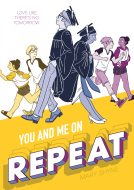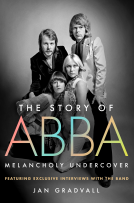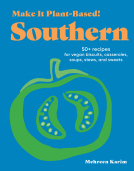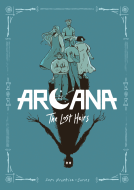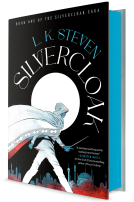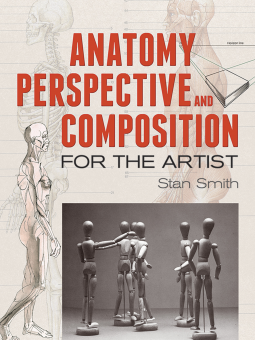
Anatomy, Perspective and Composition for the Artist
by Stan Smith
This title was previously available on NetGalley and is now archived.
Send NetGalley books directly to your Kindle or Kindle app
1
To read on a Kindle or Kindle app, please add kindle@netgalley.com as an approved email address to receive files in your Amazon account. Click here for step-by-step instructions.
2
Also find your Kindle email address within your Amazon account, and enter it here.
Pub Date Mar 19 2014 | Archive Date Jul 30 2014
Description
Author Stan Smith interprets the traditions of European art from the Renaissance onward, providing step-by-step diagrams that develop students' understanding and familiarity with concepts and techniques. Technical and expressive qualities receive equal emphasis. In addition to its value as a source of instruction, this book also functions as an essential reference.
Available Editions
| EDITION | Paperback |
| ISBN | 9780486492995 |
| PRICE | $24.95 (USD) |
Average rating from 10 members
Featured Reviews
 Samantha C, Reviewer
Samantha C, Reviewer
Very informative. Reads more like an anatomy textbook than a how-to-draw. This books lays out the parts of the human body and then shows examples of the male, female, adolescent bodies in different poses to explain how the muscles would look like for a more accurate and realistic depiction. There are also lessons on how to do perspective and composition. This book would've been useful when I did Arts and Humanities classes.
 Karen R, Reviewer
Karen R, Reviewer
Seemed like a text book but that's because the information is standard anatomy which is a basis for art studies involving people.
 Reviewer 49862
Reviewer 49862
An excellent reference volume for visual artists overall. The anatomy chapter is good, with solid information (although there are better anatomy references for artists out there), the perspective chapter is pretty good, and the composition chapter is very useful when trying to figure out a place to start a drawing or painting especially.
There are better books that deal with each specific aspect (anatomy, perspective, and composition), but this one is very useful since it has all three in one easy-to-read volume.
I received a copy of this book to peruse through NetGalley in exchange for an honest review.
 Bassocantor ., Reviewer
Bassocantor ., Reviewer
√ Knowledge of the Bones and Muscles give Authority to a Drawing
This edition is a republication of the work originally published in 1989. This book is an EXTENSIVE overview of human anatomy, with numerous, detailed sketches of the musculature and skeleton. The author advises against shortcuts, when it comes to studying anatomy: "A common mistake made by artists is to bypass an appreciation of the skeleton in favour of a superficial knowledge of muscles and fat."
► WHY YOU SHOULD BUY THIS BOOK ◄
This book is aimed at the serious, professional artist, who wants to ensure their art truly reflects the human form. Novices will likely be overwhelmed by the depth of the discussion.
► TOP THINGS I LIKED ◄
♦ Anatomy of the Face--especially the "Octogenarian man."
♦ The "Perspective" section illustrates the history and concept of perspective via famous paintings. This was like a mini-course in art history. Especially impressive were the comments about Rembrandt's "The Feast of Belshazzar." Dramatic use of light is discussed in "The Supper at Emmaus by Caravaggio."
♦ In the "Geometric Composition" section, I again felt like I was getting a master class in the craft. For example, in the painting by Piero della Francesca (c. 1420-92), "Baptism of Christ," the author explains how the curvature of the frame is all part of a geometric plan.
► RATING OF KEY FEATURES ◄
♦ Readability: Extensive detail makes this more of a reference book, not something you read from cover to cover.
♦ Quality of Artwork: Excellent, extremely detailed. See, for example, the sketch of the crouching male, or the male stretching. Really impressive.
♦ Quality of Table of Contents: There is a detailed Table of Contents, divided into three main sections:
ANATOMY, PERSPECTIVE, COMPOSITION
♦ Quality of Editing: Outstanding; professional in every way--one just one exception: Main section 3 is titled, "COMOSITION." (I wonder if that error was in the original?)
♦ Thoroughness of Index: There is both an extensive index, as well as a detailed glossary of terms at the end of the book.
♦ Usefulness: Excellent for the serious artist. Novices will likely find it overwhleming.
► ANY SPECIAL FEATURES ◄
Especially good is the "Historical Background," which explains how the early anatomical drawings came about. It turns out that early medical texts were produced and researched maintly by artists.
√ Highly Recommend! This is a top-shelf, professional treatment of the subject, likely to be best appreciated by artists who are very serious about their craft. Not for beginners.
♫ A Review by Chris Lawson
Note: I do not know the author of this book, and no one requested I write this review.
Readers who liked this book also liked:
Sam Prentice-Jones
Comics, Graphic Novels, Manga, Sci Fi & Fantasy, Teens & YA

